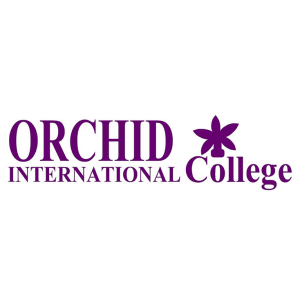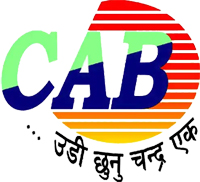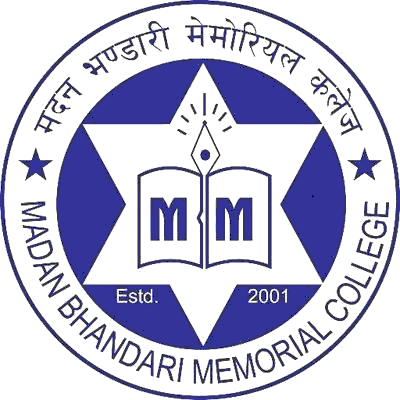Overview
BSc CSIT at Trinity International College, Dillibazar, Kathmandu
Bachelor of Science in Computer Science and Information Technology (BSc CSIT) at Trinity International College, Dillibazar, Kathmandu, is a Tribhuvan University program under the Institute of Science and Technology .
The degree spans eight semesters and 126 credit hours, covering computer science theory, software construction, data management, operating systems, networking, and elective specializations. Admission requires the IOST BSc CSIT entrance and college-level placement as per yearly notices.

Awarding Body: Tribhuvan University
College Delivery: Trinity International College, Dillibazar, Kathmandu
Program Length: Four years (eight semesters), 126 credit hours
Admission Route: IOST BSc CSIT entrance; merit-based placement and college verification
Highlights
-
Total Credits: 126 credit hours across eight semesters, as published by TU/IOST.
-
Entrance Exam: Conducted by IOST; application window and centers announced each cycle on the IOST portal.
-
Eligibility (College Reference): +2 Science with at least C grade in all subjects or 45%; Biology group applicants may apply.
-
Delivery on Campus: Trinity schedules teaching, labs, internal checks, and project supervision within TU norms.
Curriculum Details
Structure and Focus
The curriculum builds a foundation in discrete structures, programming, data structures, algorithms, computer architecture, operating systems, database systems, networking, software engineering, and theory of computation.
Electives and projects in later semesters extend into advanced topics so students can explore chosen areas with faculty supervision.
Core Domains
-
Programming & Algorithms: Multi-language exposure, analysis of algorithms, problem-solving patterns.
-
Systems & Architecture: Operating systems, architecture, and organization with corresponding labs.
-
Data & Intelligence: Database management, data communication, and selected advanced courses.
-
Theory & Methods: Discrete mathematics, numerical methods, statistics, and computational theory.
-
Applied Work: Projects and practical assignments that document implementation skills.
Credit and Semester Rhythm
IOST documents show a 126-credit structure for BSc CSIT delivered over eight semesters with practical work and periodic evaluations in each term.
Campuses within TU echo the same credit requirement across their official pages, confirming the scope and duration.
Objectives
-
Build strong computing foundations that connect formal theory with hands-on programming.
-
Prepare students for software and systems roles in Nepal’s technology sector.
-
Promote research attitudes and ethical practice through coursework and projects.
Scope
Graduates enter software engineering, web and mobile development, system and network support, database administration, QA/testing, and technical consulting roles. The 126-credit format and project evidence support applications to trainee posts and higher study in computer science or information systems.
Learning Outcomes
-
Analyze problems using discrete structures, algorithmic thinking, and computational models.
-
Build, test, and document software with attention to performance and maintainability.
-
Configure and troubleshoot operating-system and basic networking tasks.
-
Model and query data, apply normalization, and reason about transactions and recovery.
-
Prepare technical reports and defend results in reviews or viva sessions.
Skill Development Modules
-
Core Programming: Multi-semester progression with labs and code reviews.
-
Systems Competence: OS internals, architecture, and networks supported by practicals.
-
Data Skills: Database systems, data communication, and applied analytics basics.
-
Mathematical Tools: Discrete math, numerical methods, and statistics used across courses.
-
Project Practice: Supervised projects that require planning, milestones, and final presentation.
Teaching Methodology (Trinity Perspective)
Trinity implements the IOST syllabus through scheduled lectures, labs, assignments, pre-boards, and project checkpoints. Faculty map course plans to IOST calendars and help students prepare for semester-end evaluations. Lab sessions and code reviews document progress and guide remediation early in the term.
Admission Requirements
-
Eligibility (IOST Framework): Completion of 10+2 Science or equivalent with Physics and Mathematics of 100 marks each; minimum second division or at least C in all subjects under the grading system; IOST entrance pass and complete application steps. (tuiost.edu.np)
-
Eligibility (Trinity Page): At least C grade in all subjects or 45% in +2 Science or equivalent; Biology group applicants are eligible.
-
Entrance Mechanics: IOST publishes the online form, fee, date, and model questions; results drive the merit list and college placements.
Career Opportunities
Students apply for roles in software development, backend services, frontend engineering, DevOps support, QA, network and system operations, and database support.
Graduates may sit for competitive recruitment or pursue master’s study after meeting program-specific criteria.
Scholarships and Financial Aid
-
Entry-Stage: Trinity publishes bachelor-level scholarships by GPA at entry, updated each cycle.
-
In-Program: Performance-based provisions are announced through the college office and website.
-
Action Step: Review the current scholarship notice for criteria, documents, seat limits, and renewal rules.
Why Choose This Course?
BSc CSIT at Trinity follows the 126-credit IOST framework with semester pacing that blends theory and lab practice. The college manages everyday teaching, labs, and supervision on campus while the university conducts the entrance and semester-end examinations. Students gain a clear record of work through assignments and projects that support applications for trainee roles.
Conclusion
BSc CSIT at Trinity International College is a TU–IOST program delivered over eight semesters with 126 credits. The syllabus covers programming, systems, data, and theory with elective depth and project evidence. Applicants should watch for the IOST entrance call, confirm eligibility, and prepare documents for college verification and timely enrollment.
FAQ
Is BSc CSIT a 126-credit, four-year program?
Yes. IOST/TU documents and campus pages confirm 126 credits across eight semesters.
Who conducts the entrance exam?
IOST conducts the BSc CSIT entrance and publishes application windows and centers on its portal.
Are Biology group students eligible?
Trinity’s page confirms Biology group eligibility within the IOST framework for +2 Science. Review yearly criteria before applying.
What subjects make up the core?
Programming, algorithms, operating systems, architecture, databases, networking, discrete mathematics, and related labs.
Where do I verify live dates and forms?
Check the IOST portal for entrance notices and Trinity’s BSc CSIT page for college-level steps.























